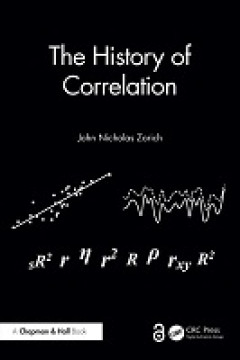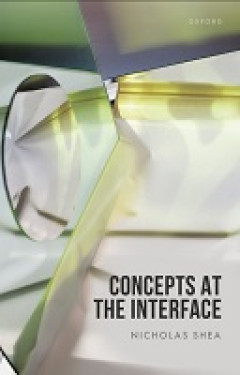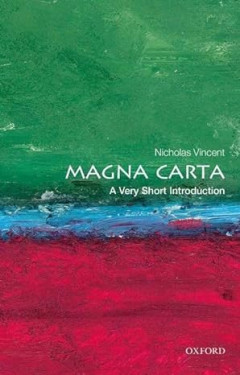Ditapis dengan

E-book The History of Correlation
After 30 years of research, the author of The History of Correlation organized his notes into a manuscript draft during the lockdown months of the COVID-19 pandemic. Getting it into shape for publication took another few years. It was a labor of love. Readers will enjoy learning in detail how correlation evolved from a completely non-mathematical concept to one today that is virtually always vi…
- Edisi
- -
- ISBN/ISSN
- 9781040261774
- Deskripsi Fisik
- 341 halaman
- Judul Seri
- -
- No. Panggil
- 510.1 ZOR t
E-book Skin in the Game: Hidden Asymmetries in Daily Life
In his most provocative and practical book yet,one of the foremost thinkers of our time redefines what it means to understand the world, succeed in a profession, contribute to a fair and just society, detect nonsense, and influence others. Citing examples ranging from Hammurabi to Seneca, Antaeus the Giant to Donald Trump, Nassim Nicholas Taleb shows how the willingness to accept one’s own ri…
- Edisi
- -
- ISBN/ISSN
- 9780425284629
- Deskripsi Fisik
- 318 halaman
- Judul Seri
- -
- No. Panggil
- 303 TAL s

E-book Concepts at the Interface
Research on concepts has concentrated on the way people apply concepts online, when presented with a stimulus. Just as important, however, is the use of concepts offline, when planning what to do or thinking about what is the case. There is strong evidence that inferences driven by conceptual thought draw heavily on special-purpose resources: sensory, motoric, affective, and evaluative. At the …
- Edisi
- -
- ISBN/ISSN
- 9780198893660
- Deskripsi Fisik
- 270 halaman
- Judul Seri
- -
- No. Panggil
- 100 SHE c
E-book Karl Popper, Science and Enightenment
Karl Popper is famous for having proposed that science advances by a process of conjecture and refutation. He is also famous for defending the open society against those he saw as its arch enemies – Plato and Marx.Popper’s contributions to thought are of profound importance, but they are not the last word on the subject. They need to be improved. My concern in this book …
- Edisi
- -
- ISBN/ISSN
- 9781787350397
- Deskripsi Fisik
- 392 hlm
- Judul Seri
- -
- No. Panggil
- 146.44 MAX k
E-book Music: A Very Short Introduction
What is music? How is it constructed? How is it consumed? Why do you enjoy it at all? In Music: A Very Short plays Introduction, Nicholas Cook invites us to really think about music and the role it plays in our lives and our ears. Drawing on a number of accessible examples, the author prompts us to call on our own musical experiences in order to think more critically about the roles of the perf…
- Edisi
- -
- ISBN/ISSN
- 9780192853821
- Deskripsi Fisik
- 159 halaman
- Judul Seri
- -
- No. Panggil
- 780.72 COO m
E-book The Dialectical Primatologist : The Past, Present and Future of Life i…
Entrance into the sacred heart of the Sancang forest requires a steep descent of 337 unevenly aligned, concrete steps. With every passing year, the tentacles of tree roots make further advances in their inevitable quest to reclaim the forest floor. Ka handap; ka luhur – the Sundanese (West Javan) terms for descending and ascending – I climb the steps several times a day following gibbons fr…
- Edisi
- -
- ISBN/ISSN
- 9780367211349
- Deskripsi Fisik
- 211 hlm
- Judul Seri
- -
- No. Panggil
- 301 MAL t

E-book Magna Carta: A Very Short Introduction
The Magna Carta is arguably the greatest constitutional document in recorded history, yet few people today understand either its contents or its context. This Very Short Introduction, which includes a full English translation of the 1215 Magna Carta, introduces the document to a modern audience, explaining its origins in the troubled reign of King John, and tracing the significant role that it …
- Edisi
- -
- ISBN/ISSN
- 9780199582877
- Deskripsi Fisik
- 288 halaman
- Judul Seri
- -
- No. Panggil
- 323.01 VIN m
E-book City of Culture 2600 BC: Early Mesopotamian History and Archaeology at…
This book presents the city beneath the surface of Abu Salabikh, southern Iraq. The archaeology and the textual data combine to reveal its architecture, agricultural and industrial enterprises, and social structure. Integrated with our wider knowledge of south Mesopotamia at this time it creates a vivid image of city life in 2600 BC.
- Edisi
- -
- ISBN/ISSN
- 9781803276700
- Deskripsi Fisik
- 246 halaman, ilus.
- Judul Seri
- -
- No. Panggil
- 930.1 POS c
E-book A Conversation about Healthy Eating
OK, this is really more of a glorified preface but I wanted to be sure that you didn’t skip it. I tend to skip prefaces because I prefer my experience of a book to be unbiased. I don’t want to know anyone else’s thoughts about a book – not even the author’s – until I’ve finished reading it and formed thoughts of my own. But this approach does have its risks: sometimes my expecta…
- Edisi
- -
- ISBN/ISSN
- 9781911576754
- Deskripsi Fisik
- 250 hlm
- Judul Seri
- -
- No. Panggil
- 613.2 LES a
E-book The Art of Parenting : Training Guide
The principle of investing in children rarely evokes controversy. However we look at it, to invest in a child is to invest in our common future: The world of tomorrow will inherit the children of today. Whether nations grow and prosper will depend heavily on the survival, health, education and protection of their citizens, particularly the youngest. There are several compelling reasons to inves…
- Edisi
- -
- ISBN/ISSN
- -
- Deskripsi Fisik
- 248 hlm
- Judul Seri
- -
- No. Panggil
- 649.1 NIC t
E-book Four Histories about Early Dutch Football, 1910-1920
I remember being interested in Dutch football from a young age. The first football match I can remember watching was the Italia 1990 World Cup match between England and the Netherlands – although saying I remember ‘watching’ it is a little inaccurate. To be honest, until I looked up the score, while writing this, I could not remember who had won (actua…
- Edisi
- -
- ISBN/ISSN
- 9781910634790
- Deskripsi Fisik
- 240 hlm
- Judul Seri
- -
- No. Panggil
- 940.5 PEI f

The black swan : Rahasia terjadinya peristiwa-peristiwa langka yang tak terduga
- Edisi
- cet. 3
- ISBN/ISSN
- 978-979-22-4156
- Deskripsi Fisik
- xxxi;443 hlm;15x23 cm
- Judul Seri
- -
- No. Panggil
- 158 TAL t
- Edisi
- cet. 3
- ISBN/ISSN
- 978-979-22-4156
- Deskripsi Fisik
- xxxi;443 hlm;15x23 cm
- Judul Seri
- -
- No. Panggil
- 158 TAL t

Die hard antrepreneur born a leader, made a champion
- Edisi
- cet. 1
- ISBN/ISSN
- 978-602-02-3173
- Deskripsi Fisik
- xv, 191 hlm.;illus.;14 x 21 cm
- Judul Seri
- -
- No. Panggil
- 128 KUR d
- Edisi
- cet. 1
- ISBN/ISSN
- 978-602-02-3173
- Deskripsi Fisik
- xv, 191 hlm.;illus.;14 x 21 cm
- Judul Seri
- -
- No. Panggil
- 128 KUR d

PENYELAMATAN
- Edisi
- cet. 1
- ISBN/ISSN
- 979-22-1564-6
- Deskripsi Fisik
- 488 hlm;11 x 18 cm
- Judul Seri
- -
- No. Panggil
- 823 SPA p
- Edisi
- cet. 1
- ISBN/ISSN
- 979-22-1564-6
- Deskripsi Fisik
- 488 hlm;11 x 18 cm
- Judul Seri
- -
- No. Panggil
- 823 SPA p

MALAM-MALAM DI RODANTHE
- Edisi
- cet. 1
- ISBN/ISSN
- 979-22-2473-4
- Deskripsi Fisik
- 308 hlm;11 x 18 cm
- Judul Seri
- -
- No. Panggil
- 823 SPA m
- Edisi
- cet. 1
- ISBN/ISSN
- 979-22-2473-4
- Deskripsi Fisik
- 308 hlm;11 x 18 cm
- Judul Seri
- -
- No. Panggil
- 823 SPA m

BUKU HARIAN
- Edisi
- cet. 1
- ISBN/ISSN
- 979-686-376-6
- Deskripsi Fisik
- 288 hlm;11 x 18 xm
- Judul Seri
- -
- No. Panggil
- 823 SPA b
- Edisi
- cet. 1
- ISBN/ISSN
- 979-686-376-6
- Deskripsi Fisik
- 288 hlm;11 x 18 xm
- Judul Seri
- -
- No. Panggil
- 823 SPA b
 Karya Umum
Karya Umum  Filsafat
Filsafat  Agama
Agama  Ilmu-ilmu Sosial
Ilmu-ilmu Sosial  Bahasa
Bahasa  Ilmu-ilmu Murni
Ilmu-ilmu Murni  Ilmu-ilmu Terapan
Ilmu-ilmu Terapan  Kesenian, Hiburan, dan Olahraga
Kesenian, Hiburan, dan Olahraga  Kesusastraan
Kesusastraan  Geografi dan Sejarah
Geografi dan Sejarah